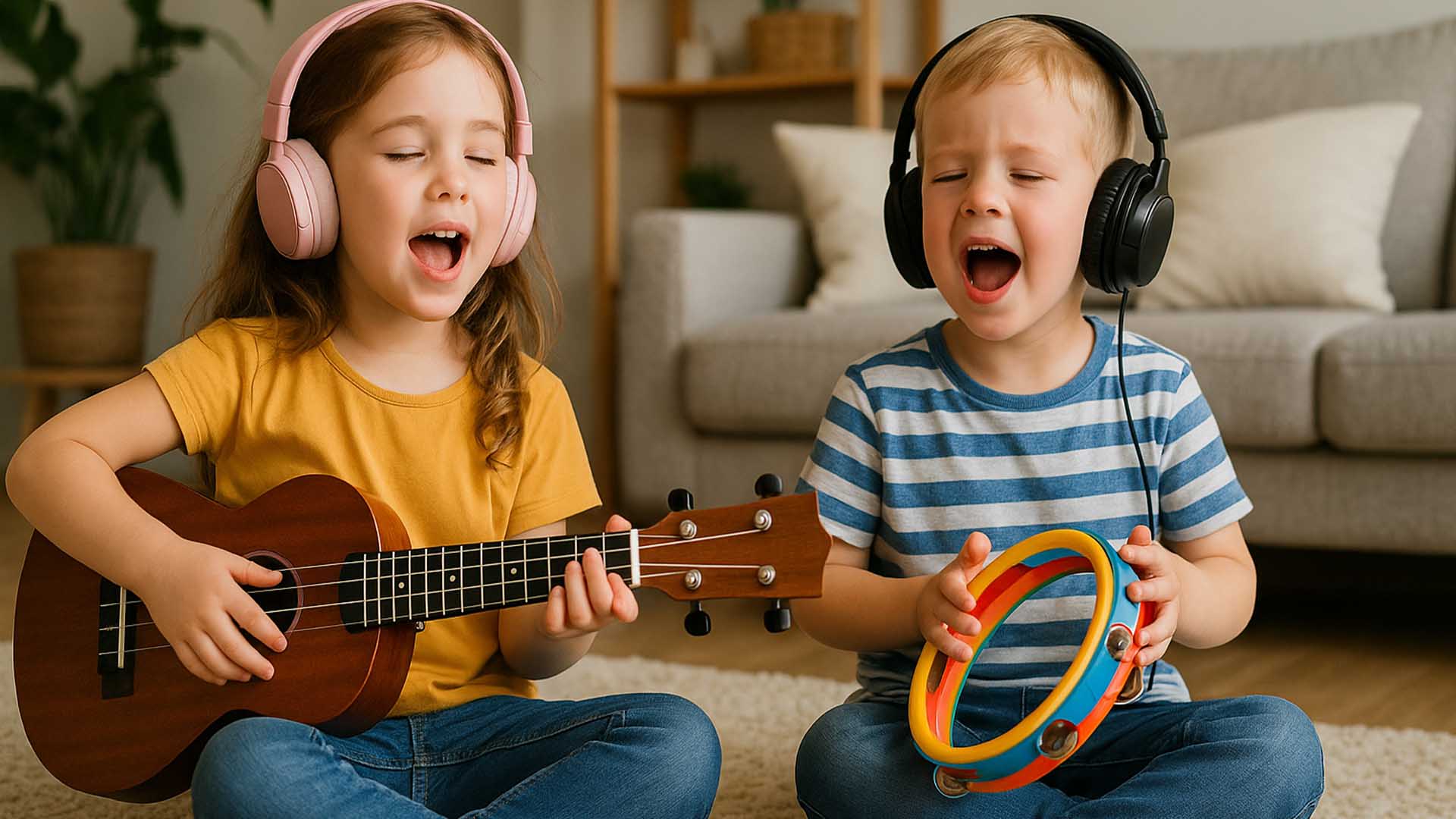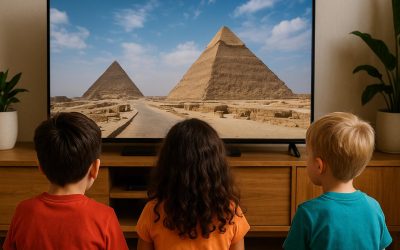Music is a universal language that transcends cultures and generations, and for children, it plays a particularly vital role in development. From catchy nursery rhymes to popular kids\’ pop songs, music offers more than just entertainment; it\’s a powerful tool for learning, emotional expression, and cognitive growth. This article explores the profound impact of music on young minds, highlighting how songs contribute to various aspects of child development and why incorporating music into a child\’s daily life is so beneficial.
Music and Early Childhood Development
Even before they can speak, babies respond to music, demonstrating its innate connection to human development. Engaging with music in early childhood ignites all areas of development, including intellectual, social-emotional, motor, language, and overall literacy skills [1]. Simple activities like singing lullabies, clapping to a beat, or dancing to a tune help children develop rhythm, coordination, and fine motor skills. Exposure to music at a young age has been linked to increased IQ, improved language skills, and enhanced test scores, laying a strong foundation for future academic success [2].
The Educational Benefits of Children\’s Songs
Children\’s songs are often designed with educational purposes in mind, making learning fun and memorable. Nursery rhymes and alphabet songs help with language acquisition and phonological awareness, while counting songs introduce basic mathematical concepts. Songs about animals, colors, and shapes expand vocabulary and general knowledge. The repetitive nature of many children\’s songs aids in memorization and reinforces learning, making complex ideas more accessible and enjoyable for young learners. Moreover, singing together fosters a sense of community and encourages social interaction among children.
Music as an Emotional Outlet and Social Connector
Music provides a powerful outlet for emotional expression, allowing children to explore and understand their feelings in a safe and creative way. Upbeat songs can energize and uplift, while calmer melodies can soothe and relax. Participating in musical activities, whether singing in a choir, playing an instrument, or simply dancing, helps children develop self-expression and confidence. Music also serves as a strong social connector, bringing children together through shared experiences. Group singing, dancing, and playing instruments encourage teamwork, cooperation, and empathy, fostering positive social bonds.
The Evolution of Kids\’ Music: From Classics to Pop Hits
The landscape of children\’s music is constantly evolving, with traditional nursery rhymes coexisting with modern pop hits adapted for younger audiences. Today, children have access to a wide variety of music, from classic folk songs to clean versions of popular chart-toppers. Playlists like “Kids Music 2025 | Happy Children’s Music” [3] and “Best Kid Songs 2025” [4] showcase the blend of timeless tunes and contemporary sounds that resonate with today\’s youth. This diversity ensures that children can find music that appeals to their individual tastes while still benefiting from the developmental advantages that music offers.
Q&A
Q1: How does music help with a child\’s language development?
A1: Music, especially songs with repetitive lyrics and clear rhythms, helps children develop phonological awareness, expand their vocabulary, and improve their ability to recognize and produce speech sounds. Singing also encourages articulation and strengthens vocal cords.
Q2: What are some simple ways to incorporate music into my child\’s daily routine?
A2: You can sing songs during playtime, listen to music during car rides, dance together, or introduce simple musical instruments. Even just having background music playing can expose children to different rhythms and melodies.
Q3: Are modern pop songs suitable for children?
A3: Many modern pop songs are adapted into
clean versions for kids, making them suitable for younger audiences. These versions often remove inappropriate lyrics while retaining the catchy melodies and rhythms that children enjoy. It\’s always a good idea for parents to preview songs and playlists to ensure they are age-appropriate.
Sources
[1] Bright Horizons. (2022, February 25). Children and Music: Benefits of Music in Child Development. https://www.brighthorizons.com/article/education/music-and-children-rhythm-meets-child-development
[2] PBone Music. (2023, June 9). Top 10 Benefits of Music in Early Childhood. https://blog.pbonemusic.com/top-10-benefits-of-music
[3] Clean Music. (n.d.). Kids Music 2025 | Happy Children’s Music [Spotify playlist]. Retrieved August 15, 2025, from https://open.spotify.com/playlist/3IfvYR4BaTFNomLPpy48GR
[4] KIDZ BOP. (2025, March 5). Best Kid Songs 2025 | 25 Minutes [YouTube video].








0 Comments